True stories are grabbing the Oscar spotlight from novels like never before
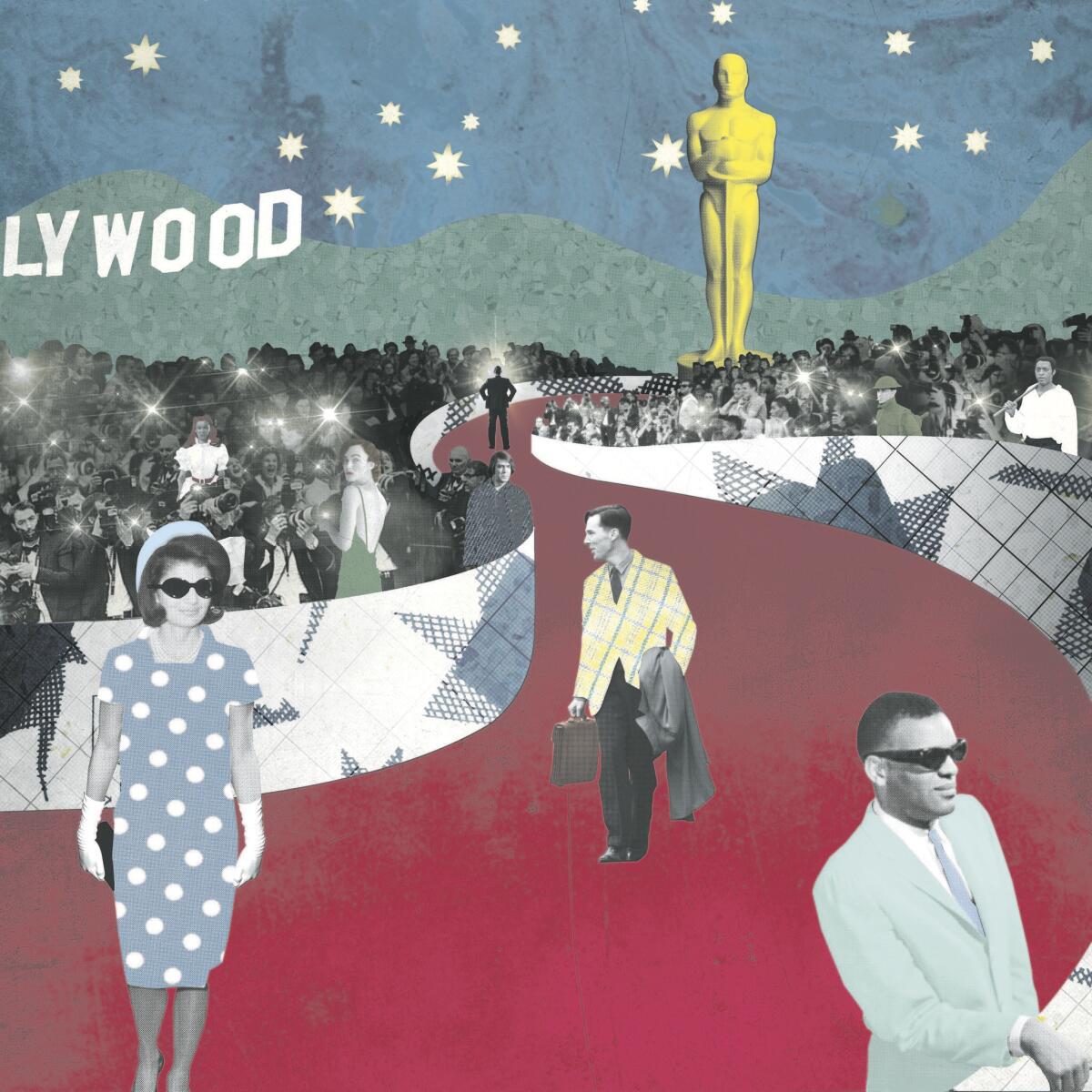
- Share via
Once upon a time in Hollywood, the big-screen adaptation of a cherished novel was moviedom’s fair-haired boy. Its most statuette-worthy status symbol. Its premium product.
Come awards season each year for three-quarters of a century, such literary adaptations would swan into theaters like glamorous debutantes — “Gone With the Wind,” “To Kill a Mockingbird,” “Dr. Zhivago,” “Terms of Endearment,” “The English Patient” and the like — titles with prestigious literary pedigrees, big stars, lustrous production values and the unmistakable whiff of cultural importance.
But somewhere over the last decade or so, a kind of tilt took place. And where page-to-screen translations had been a surefire path to awards glory, nowadays ripped-from-the-headlines films, biopics and movies based on real-life events have largely taken over as Hollywood’s most prestigious fare.
“There’s almost a universal appeal to a true-life story,” says David Klawans, the independent producer who helped develop biographical material into bio-dramas such as 2013’s best picture Oscar winner “Argo,” the Amazon series “The Legend of Master Legend” and the upcoming George Clooney production “Coronado High.” “It’s something the audience can relate to better. A lot of these movies are based on events that were long forgotten. That only makes them more powerful.”
Exhibit A: In February, “Spotlight” nabbed the best picture and original screenplay Academy Awards, plotted around the crusading team of real-life Boston Globe reporters who blew the lid off a child-sexual abuse scandal by Catholic priests. In 2014, 10 true-story films — led by “12 Years a Slave” — garnered a staggering 34 Oscar nods. And heading into this year’s awards season, no fewer than 14 biopics are poised for awards acclaim. Among them: “Lion” (about an Indian orphan’s exhaustive search for family), “Loving” (plotted around a couple who challenged laws against interracial marriage in 1958), “Jackie” (starring Natalie Portman as Jacqueline Kennedy), “The Founder” (Michael Keaton as McDonald’s fast-food empire builder Ray Kroc) and “Bleed for This” (following the miraculous comeback of champion boxer Vinny Pazienza).
Envelope Screening Series: ‘Loving’

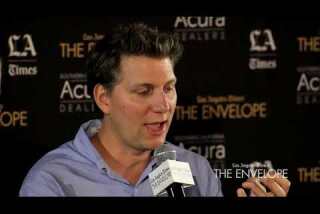
Video: 'Loving' full Q&A: Jeff Nichols, Joel Edgerton and Ruth Negga
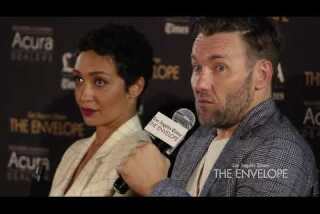
Joel Edgerton on why more people aren't aware of the Lovings' story
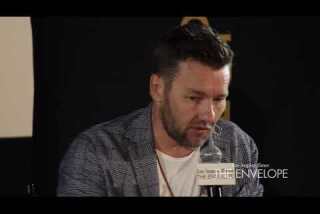
Joel Edgerton on why 'Loving's' Richard and Mildred stayed together

'Loving' director Jeff Nichols shares what attracted him to the civil rights love story
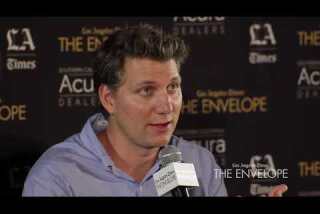
Director Jeff Nichols on the 'Loving' cast: 'The first person I cast was Ruth'

Ruth Negga feels the energy while filming 'Loving' in places the real events occurred
Contrast that lineup to the Oscar bait released during awards season — as that unofficial span of months roughly stretching from late August through the end of the year is known — back in 2007. A mere five fact-based films, including the Edith Piaf biopic “La Vie en Rose” and director Julian Schnabel’s quadriplegic drama “The Diving Bell and the Butterfly,” squared off against 13 literary adaptations such as the Coen brothers’ translation of Cormac McCarthy’s “No Country for Old Men” (which won the best picture and director Academy Awards) and the big screen blowup of novelist Ian McEwan’s “Atonement” (seven Oscar nominations, one win).
So what caused awards season to morph into biopic season over the last few years? Some industry insiders point to Hollywood’s dawning recognition of certain market realities that help translate “based on a true story” into both commercial and critical hits.
Everything old is new again: According to several gurus of gold, modern audiences thrill at discovering an old story that’s been dusted off and given new importance in a movie — often as a reflection of changing times and social mores. This year, that seems likely to happen with “Hidden Figures,” a drama about a historically overlooked group of female African American mathematicians whose breakthrough calculations helped NASA pull ahead in the space race.
Classy characterizations: Biopics come built-in with juicy roles based on real people that actors can assiduously research — and to which audiences can quantitatively compare with the genuine article (such as Jamie Foxx’s Oscar-winning portrayal of legendary soul pioneer Ray Charles in 2004’s “Ray”).
Righting historical wrongs as movie marketing: To promote “The Imitation Game” — about Alan Turing, the man who cracked the Nazis’ Enigma Code in World War II but was later convicted of homosexuality and subjected to chemical castration — distributor the Weinstein Co. backed a campaign to pardon some 49,000 gay people who were prosecuted for similar crimes in Britain. Meanwhile, ads and billboards tweaked Oscar voters’ sense of moral outrage with the message: “Honor this man. Honor this film.”
All of which isn’t to say the prestigious literary adaptation is dead. This awards season will contemplate the merits of Martin Scorsese’s “Silence” (coming late this year and based on the 1966 novel of the same name by Shusaku Endo), director Ang Lee’s screen conversion of the National Book Critics Circle Award-winning “Billy Lynn’s Long Halftime Walk,” opening Friday, and last month’s “American Pastoral,” based on Philip Roth’s 1997 bestseller.
It’s just that at a time of wholesale studio cutbacks on Oscar-worthy adult dramas, when hand-wringing op-eds lament how movies “as we know them” are dead, biopics have an ineluctable advantage over novels. “Truth is stranger than fiction,” says Klawans.
See the most read stories this hour »
From the Oscars to the Emmys.
Get the Envelope newsletter for exclusive awards season coverage, behind-the-scenes stories from the Envelope podcast and columnist Glenn Whipp’s must-read analysis.
You may occasionally receive promotional content from the Los Angeles Times.




